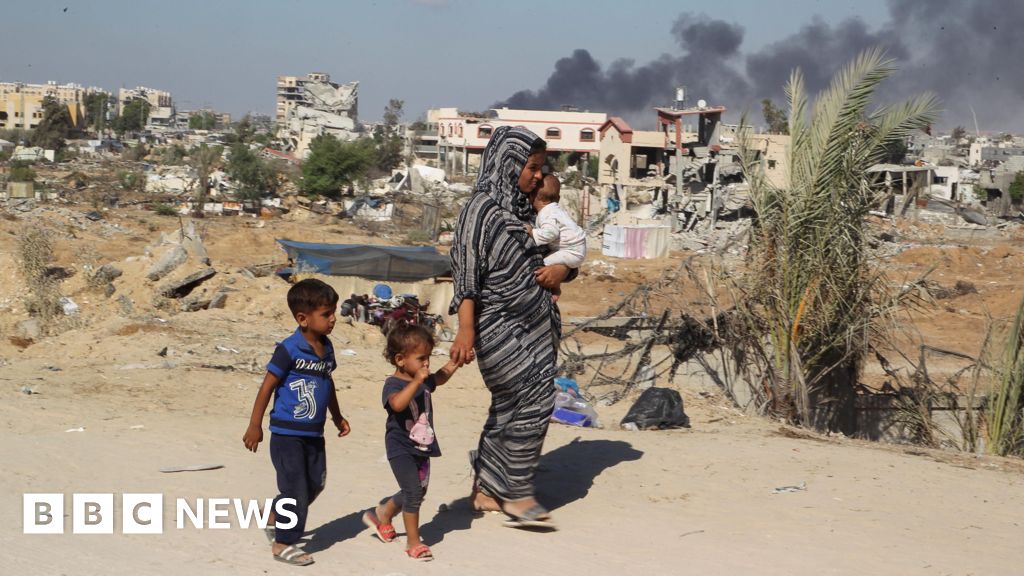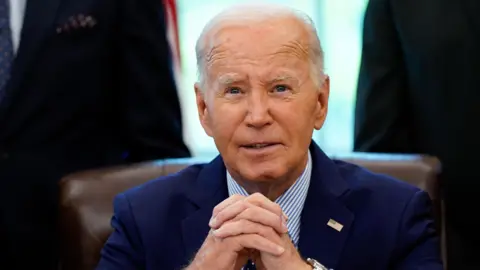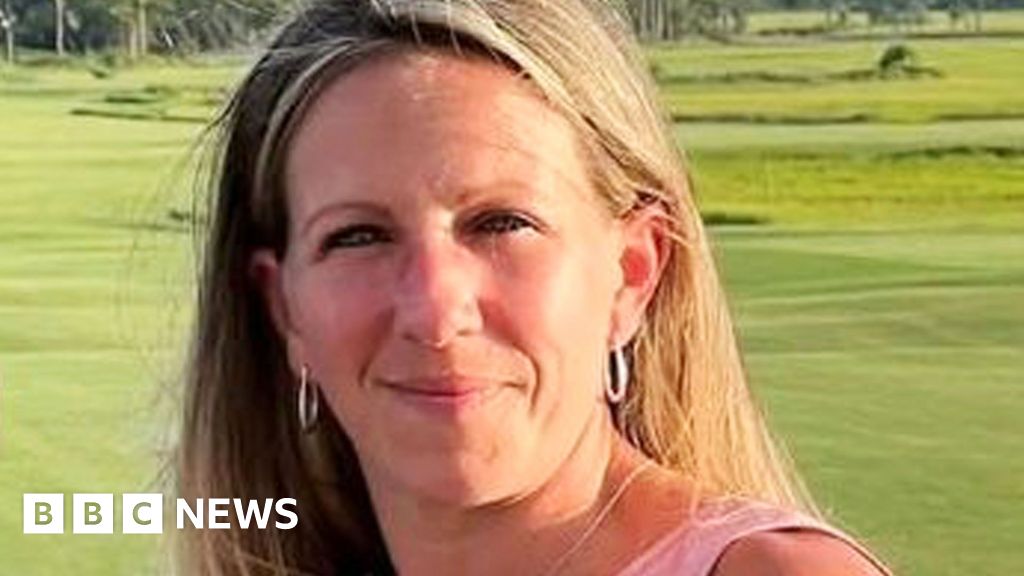
Israel-Gaza ceasefire deal closer than ever, Biden says
- International
- August 17, 2024
- No Comment
- 189
 Reuters
ReutersJoe Biden has said he is “optimistic” that a Gaza ceasefire deal can be reached.
“We are closer than we’ve ever been,” the US president said following the latest round of talks, adding he was sending his secretary of state to Israel to continue the “intensive efforts to conclude this agreement”.
Amid concerns that Iran may launch an attack on Israel for the assassination of Hamas leader Ismail Haniyeh in Tehran, Mr Biden said “no-one in the region should take actions to undermine this process”.
Hamas has expressed scepticism about the chances of a deal. And without mentioning the possibility of a ceasefire, Israel said it “appreciates the efforts of the US and the mediators to dissuade Hamas from its refusal to a hostage release deal”.
The Israeli military launched a campaign in Gaza to destroy Hamas in response to an unprecedented attack on southern Israel on 7 October, during which about 1,200 people were killed and 251 taken hostage.
More than 40,000 people have been killed in Gaza since then, according to the territory’s Hamas-run health ministry.
A ceasefire deal agreed in November saw Hamas release 105 of the hostages in return for a week-long ceasefire and the freeing of some 240 Palestinian prisoners in Israeli jails. Israel says 111 hostages are still being held, 39 of whom are presumed dead.
In a recent joint statement, the US, Qatar and Egypt stated that they had presented a proposal for a ceasefire and hostage release deal that “narrows the gaps” between Israel and Hamas.
Israel has said any ceasefire deal would require the release of the remaining hostages taken to Gaza by militants during the 7 October attack on Israel. Some of the 251 hostages have already been released, while others are thought to have died in Gaza.
Relatives of hostages still in Gaza are calling the current negotiations as the “last chance” to get some of them out alive.
After 10 months of war and thousands of casualties, there is overwhelming pressure for a breakthrough.
A wider regional conflict, in the event of talks between Israel and Hamas collapsing completely, is a distinct possibility and is something all of those involved are fearful of.
The mediators said that the past two days of ceasefire discussions had been “serious, constructive and conducted in a positive atmosphere”.
Technical teams are expected to continue working over the coming days on the details of how to implement the proposed terms before senior government officials meet again in Cairo, hoping to reach an agreement on the terms set out in Doha.
While the mediators’ statement is clearly a positive development, there is still a long way to go before a ceasefire is agreed.
This is not the first time the Mr Biden has said he thought a deal was close – and not everyone shares his cautious optimism.
Neither Hamas nor the Israeli government have been quite so upbeat in their responses.
A senior Hamas official told the BBC that, in effect, Israel had changed some of its demands about the free movement of people within Gaza in the event of a ceasefire and remaining Israeli military control in key areas of Gaza.
Israel says its position and core principles have remained unchanged and were “well-known”. It accused Hamas of refusing to agree to a deal for the release of the hostages.
Above all else, Israelis want to see the remaining hostages released but many are sceptical that is Israeli Prime Minister Benjamin Netanyahu’s primary goal. He has insisted that a “total victory” over Hamas is his government’s priority.
Meanwhile, Hamas’ new leader, Yaya Sinwar, continues to show few signs of compromise.
 Reuters
ReutersA senior figure from Hamas – which did not participate in the talks, but was in contact with Qatari and Egyptian officials – told the BBC that the negotiations in Doha had not yielded “a commitment to implement what was agreed upon” during talks in July.
Those talks are understood to have seen Hamas drop its demand for a permanent ceasefire in favour of Mr Biden’s proposal for a six-week pause in which an end to the war could be brokered.
Mr Biden’s ceasefire proposal also included the withdrawal of Israeli forces from all populated areas of Gaza, the staggered release of hostages in exchange for Palestinian prisoners, and the return of dead hostages’ remains.
However, Hamas accused Israel of introducing new conditions a week later, but is understood to remain open to revisiting the previous version of the deal.
The “bridging proposal” put forward by US, Egyptian and Qatari negotiators will be the subject of US Secretary of State Antony Blinken’s negotiations in the region and should form the basis for the next talks in Cairo at which all parties, including Hamas, are expected to attend.
That proposal reportedly “closes the remaining gaps” between the two sides’ positions which could allow for “a rapid implementation of the agreement”.
It might sound straightforward, but there are big obstacles to overcome and there is still absolutely no trust between senior Israeli or Hamas figures.
They’re being dragged to the table – perhaps against their wishes – by others fearful of what could happen in the event of failure.
Meanwhile, Israel’s military operation in Gaza continues, with an air strike in the early hours of Saturday morning killing 15 people in the al-Zawaida neighbourhood of central Gaza, according to the Palestinian civil defence authority, a rescue service.
Spokesman Mahmud Bassal told AFP news agency nine children and three women were among the dead.
Israel has not commented directly. The Israel Defense Forces said on Saturday morning it had “eliminated a number of terrorists” in central Gaza, including one that had fired at Israeli forces operating in the area.
The Israeli military has issued new evacuation orders for several blocks in northern Khan Younis and Deir Balah – further shrinking the humanitarian zone in which thousands of displaced Palestinians have sought refuge from the fighting.
Israel said the blocks had become dangerous for civilians “due to significant acts of terrorism” and the firing of rockets and mortars towards Israel.
The UN agency for Palestinian refugees (Unrwa) said: “Once again, fear spreads as families have nowhere to go.”
Pressing the need for a ceasefire deal is the circulation of the polio virus – which can spread through faecal matter – is now circulating inside the Israeli-designated humanitarian zone in Gaza.
“Let’s be clear: The ultimate vaccine for polio is peace and an immediate humanitarian ceasefire,” UN Secretary General António Guterres said.
#IsraelGaza #ceasefire #deal #closer #Biden










